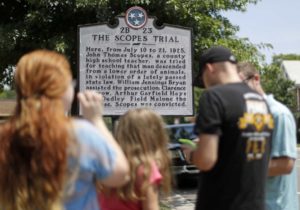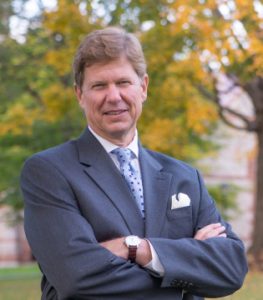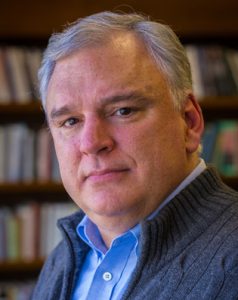Scrolling the web for morning news, I came across an article titled, “Historical Facts You’ll Wish Weren’t Really True.” The article turned out to be about historical oddities of not even passing interest.
The headline, however, suggests an entire philosophy of some Americans today in relation to our actual history. Their mantra: “I wish this weren’t true.”
This bent toward wishing reminds me of a revival preacher teaching a Sunday school class at First Baptist Church of Zachary, La., about Jesus turning water into wine. As he explained the moment when Jesus made the “new wine,” a woman in the back of the room whispered, “I just wish he hadn’t done that.”
Those wishing actual history weren’t true today include a coalition of conservative evangelicals and other marginally religious white Christian nationalists.
Let’s begin with creation
The most conservative of evangelicals always have had a fixation over the story of creation and the science of evolution. They zealously insist on a literal creation. At the same time, they insist evolution is the devil’s tool, the enemy of the faith.
From the time Charles Darwin’s work was first read in America, the fundamentalists have marshalled all their power against evolution. We are used to this bombardment from the alternate universe of creationism. They wish science wasn’t true, so they deny it.

Historical marker at site of Scopes Trial in Tennessee.
What has been somewhat surprising is the more recent attack on American history. Conservatives attacking American history has been around for a while, but not in a well-organized campaign until the last 50 years.
Evangelist Billy Sunday once argued that God was punishing the Germans in World War I for “higher criticism and heresies.” Billy Graham called America back to the glory of America’s early Christian origins. Peter Marshall and David Manuel teamed up to rewrite American history in 1975. Their book, The Light and the Glory, signaled the launch of the anti-history movement among evangelicals.
D. James Kennedy, the Coral Gables, Fla., Presbyterian preacher, took the revised American history to cable television. He also brought national attention to the work of Rousas John Rushdoony. Now, patriotism as mixed with Rushdoony’s vision of an America ruled by Christians to create the Dominionist movement.
Kennedy was followed by David Barton, another amateur historian, who by 1990 had become America’s premier Christian (revisionist) historian.
All emotional appeals
Investigating this all-out war against history and historians, I determined that all the weapons used by the history deniers are emotional in nature. Truth is sacrificed on the altar of getting to feel good about constantly being told that historical truth is not true.
“Truth is sacrificed on the altar of getting to feel good about constantly being told that historical truth is not true.”
This suggests we have wandered far from any standard philosophical concern with truth or facts. Feeling good and feeling free dominate the reading of history from people as diverse as Gov. Ron DeSantis of Florida, Sen. Tom Cotton of Arkansas, and Rep. Marjorie Taylor Greene of Georgia. What happened in American history is pushed aside for revisionist versions — feel good, patriotic versions lauding the importance of Christianity to the formation of our country and the splendid contributions of wealthy white people like Rockefeller and Carnegie.
Feeling good despite America’s horrific sins and dismal human rights record, the evangelicals and other history deniers simply keep repeating that history is not real. History is not true. The historians have lied, distorted and imagined.
This is the modern evangelical world. They wish things were not true, so they keep telling people they are not true until large groups of people gather in churches to reassure one another that what they believe is what everyone believes.
Wish fulfilment
From a psychological point of view, these conservatives engage in a way of viewing history as a wish fulfilment. Evangelicals have experience in wish-fulfilment fantasies. They don’t wish for the universe to be billions of years old, so they deny it and write a different account claiming the Bible defends their fantasy. They don’t wish for the Bible to be a book filled with symbolic language, so they insist that its words are literal. How ironic to insist that the Bible is a book that gives actual historical accounts and then spend so much time denying that American history is not actual but biased, distorted and twisted by liberal historians.

The Ark Encounter
This offers a case study for Freudian analysis — a clear case of wish-fulfilment — to have a holy nation, a nation called forth and anointed by God, a nation like no other nation, a nation capable of taking the place of a failed Israel, a pure nation that has the power to ascend to heaven. This is the kind of fantasy the Christian nationalists dispense daily both in terms of the Bible and American history.
This twisted use of literalism reaches from Bible interpretation to science denial to understanding America’s founding documents. Christian nationalists ask people to believe the impossible, the fictional and the non-factual legends about our founding fathers just as they ask us to believe the impossible about creation. The imposition of literalism colors every page of Christian nationalism, causing them to read the Constitution with the same literary hermeneutics they impose on the Bible.
The conservative attack is twin-pronged: writing revisionist history and launching ad homimen attacks on historians. They write a revisionist history that makes them feel good — an emotional kids book for everyone. When historians tell the truth about history, these conservatives use negative rhetorical tropes to attack the writer.
“They write a revisionist history that makes them feel good.”
Ta Nehisi Coates wrote, “It is often said that Trump has no real ideology, which is not true — his ideology is white supremacy, in all its truculent and sanctimonious power.” For this, he was attacked. National columnist David Brooks felt obligated to tell Coates he was wrong, accusing him of “seeing the problem of racism in maximalist terms.”
If that’s the case, then Brooks and his allies are guilty of seeing “the problem of racism” in minimalist terms. So minimal that it gets covered up.
Three who are telling the truth
Agreeing with American historian David Blight, that we must fight disinformation with good information, I think it important to read the works of historians who have joined the battle against Christian nationalism. William V. Trollinger, Randall Balmer, and John Fea are three American historians who have not flinched in the face of the withering attacks on history and historians. They have faithfully called evangelicals to task.
Trollinger has engaged Ken Ham and the creationists and called them to task for their glaring misinformation. William and Susan Trollinger wrote Righting America at the Creation Museum. John Fea takes on the entire world of evangelicalism in Believe Me. Fea dismantles the specious arguments of David Barton. Randall Balmer lays out the argument for a distorted evangelical faith in Bad Faith: Race and the Rise of the Religious Right and Thy Kingdom Come: How the Religious Right Distorts Faith and Threatens America.
I asked these three historians to make a list of historical facts that evangelicals wished weren’t true.

William Trollinger
Trollinger argues the evangelicals wish it weren’t true that the Pilgrims did not come to America for religious freedom, but for their religious freedom; that a literal reading of the Bible among Southern evangelicals undergirded their commitment to slavery and segregation; that Thomas Jefferson and George Washington were not evangelicals; that the KKK of the 1920s — with approximately 5 million members at its high point — presented itself as the quintessential Protestant Christian organization. To that point: Every Klan meeting house had an altar with the Bible opened to Romans 12:1-2; when Klansmen were initiated into the organization the membership sang “Just As I Am”‘; Jesus was represented as the First Klansman.

Randall Balmer
Balmer suggests the biggest historical fact evangelicals wish wasn’t true is that abortion was the originating issue for the beginning of the movement in the 1970s. Here, the evangelicals not only wish, but they have created originating myths to back up the wish. Abortion was not the originating issue for evangelicals in the 1970s; segregation was.
Other uncomfortable truths evangelicals refuse to believe, according to Balmer: That C.I. Scofield and Ronald Reagan both were divorced; that, according to independent sources, Donald Trump made more than 30,500 false or misleading statements during his four years as president. (The same source attributed 28 such instances to Barack Obama — over eight years.) They bristle at the historical reality that Jimmy Carter actually kept his promise that he would “never knowingly lie” to the American people, that Donald Trump did not garner a majority of votes in each of the two most recent presidential elections, that he has violated a clear majority of the Ten Commandments, that a majority of evangelicals supported the invasion of Iraq, and that no evangelicals showed up with other religious leaders for the march from Selma to Montgomery.

John Fea
Fea says evangelicals wish it weren’t true that the Constitution was written as a secular document. Nor was it divinely inspired. They wish that it weren’t true that the separation of church and state allowed Christianity in the United States to flourish; that evangelical Baptists in early America were the strongest proponents of keeping religion and government separate; that a literal reading of the Bible among Southern evangelicals undergirded their commitment to slavery; that the 17th century Puritans hung Quakers in Boston Commons and dispelled anyone who did not conform to their reading of the Bible; that “under God” was not included in the Pledge of Allegiance until 1954.
In all these ways, we see that the evangelicals — really the modern-day fundamentalists — are like old hippies who can’t make up their minds whether to hang on to apocalyptic fantasies or keep wishing on the stars that what is true is not true. At least the evangelicals are consistent in reading the Bible and history with the rose-colored spectacles of fantasy.
Rodney W. Kennedy currently serves as interim pastor of Emmanuel Freiden Federated Church in Schenectady, N.Y., and as preaching instructor Palmer Theological Seminary. He is the author of nine books, including the newly released The Immaculate Mistake, about how evangelical Christians gave birth to Donald Trump.
Related articles:
Knowing our history does not make us anti-American | Opinion by Russ Dean
The fantastical world of climate change denial: Slouching toward annihilation | Opinion by Rodney Kennedy
Racial history is American history | Opinion by Russell Waldrop


